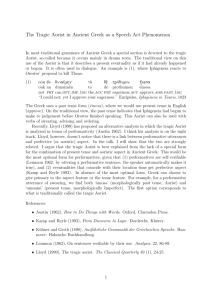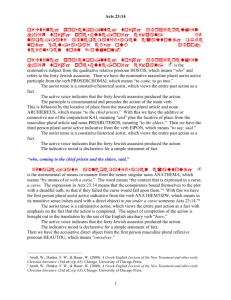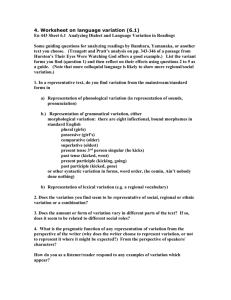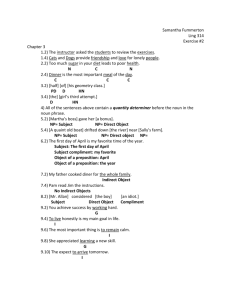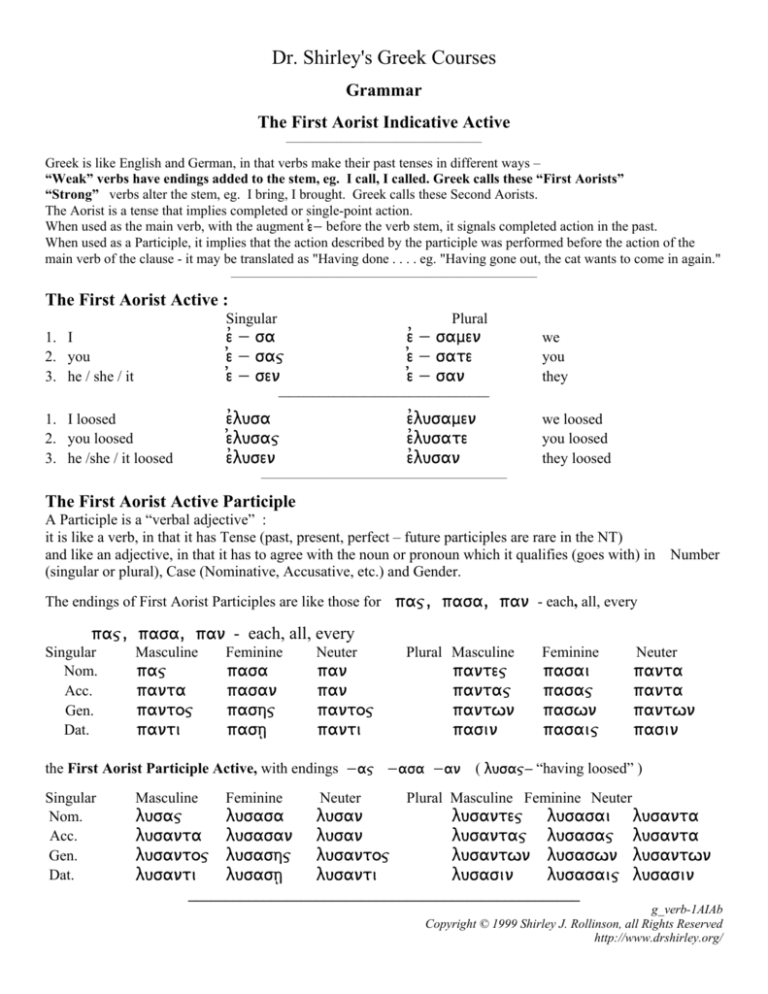
Dr. Shirley's Greek Courses
Grammar
The First Aorist Indicative Active
_______________________________________
Greek is like English and German, in that verbs make their past tenses in different ways –
“Weak” verbs have endings added to the stem, eg. I call, I called. Greek calls these “First Aorists”
“Strong” verbs alter the stem, eg. I bring, I brought. Greek calls these Second Aorists.
The Aorist is a tense that implies completed or single-point action.
When used as the main verb, with the augment e)- before the verb stem, it signals completed action in the past.
When used as a Participle, it implies that the action described by the participle was performed before the action of the
main verb of the clause - it may be translated as "Having done . . . . eg. "Having gone out, the cat wants to come in again."
_____________________________________________________________
The First Aorist Active :
Singular
Plural
e0 - sa
e) - saj
e) - sen
1. I
2. you
3. he / she / it
e0 - samen
e) - sate
e) - san
we
you
they
__________________________________________
e0lusa
e)lusaj
e0lusen
1. I loosed
2. you loosed
3. he /she / it loosed
e0lusamen
e0lusate
e0lusan
we loosed
you loosed
they loosed
_________________________________________________
The First Aorist Active Participle
A Participle is a “verbal adjective” :
it is like a verb, in that it has Tense (past, present, perfect – future participles are rare in the NT)
and like an adjective, in that it has to agree with the noun or pronoun which it qualifies (goes with) in Number
(singular or plural), Case (Nominative, Accusative, etc.) and Gender.
The endings of First Aorist Participles are like those for paj, pasa, pan - each, all, every
paj, pasa, pan - each, all, every
Singular
Nom.
Acc.
Gen.
Dat.
Masculine
Feminine
Neuter
paj
panta
pantoj
panti
pasa
pasan
pashj
pash|
pan
pan
pantoj
panti
Plural Masculine
Feminine
Neuter
pantej
pantaj
pantwn
pasin
pasai
pasaj
paswn
pasaij
panta
panta
pantwn
pasin
the First Aorist Participle Active, with endings -aj -asa -an ( lusaj– “having loosed” )
Singular
Nom.
Acc.
Gen.
Dat.
Masculine
Feminine
Neuter
lusaj
lusanta
lusantoj
lusanti
lusasa
lusasan
lusashj
lusash|
lusan
lusan
lusantoj
lusanti
Plural Masculine Feminine Neuter
lusantej
lusantaj
lusantwn
lusasin
lusasai
lusasaj
lusaswn
lusasaij
lusanta
lusanta
lusantwn
lusasin
____________________________________________________
g_verb-1AIAb
Copyright © 1999 Shirley J. Rollinson, all Rights Reserved
http://www.drshirley.org/


